
Day 1
Session: Catalysts for Change
In this series of signature talks, key leaders introduce pivotal projects and developments that frame the theme of this year’s GTM: the future of public health intelligence. From the EIOS initiative’s expanding impact and future strategy, and data.org’s Epiverse launching on the African continent, to the vital role of the WHO Regional Emergency Hub in Dakar, each session highlights a critical piece of our collective mission. Together, these projects form a cohesive vision to enhance surveillance, foster regional resilience, and drive innovative responses to health threats across Africa and beyond.
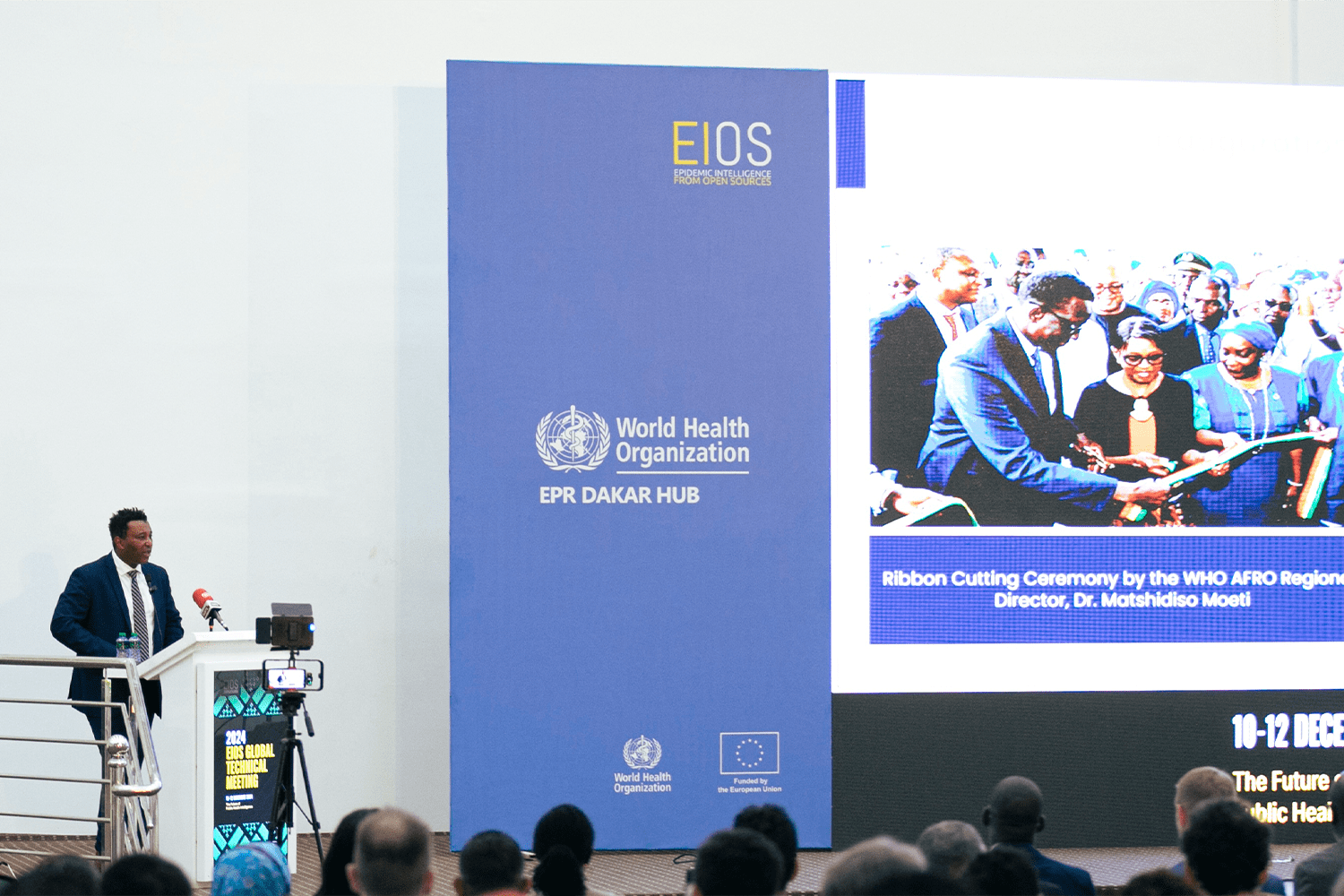
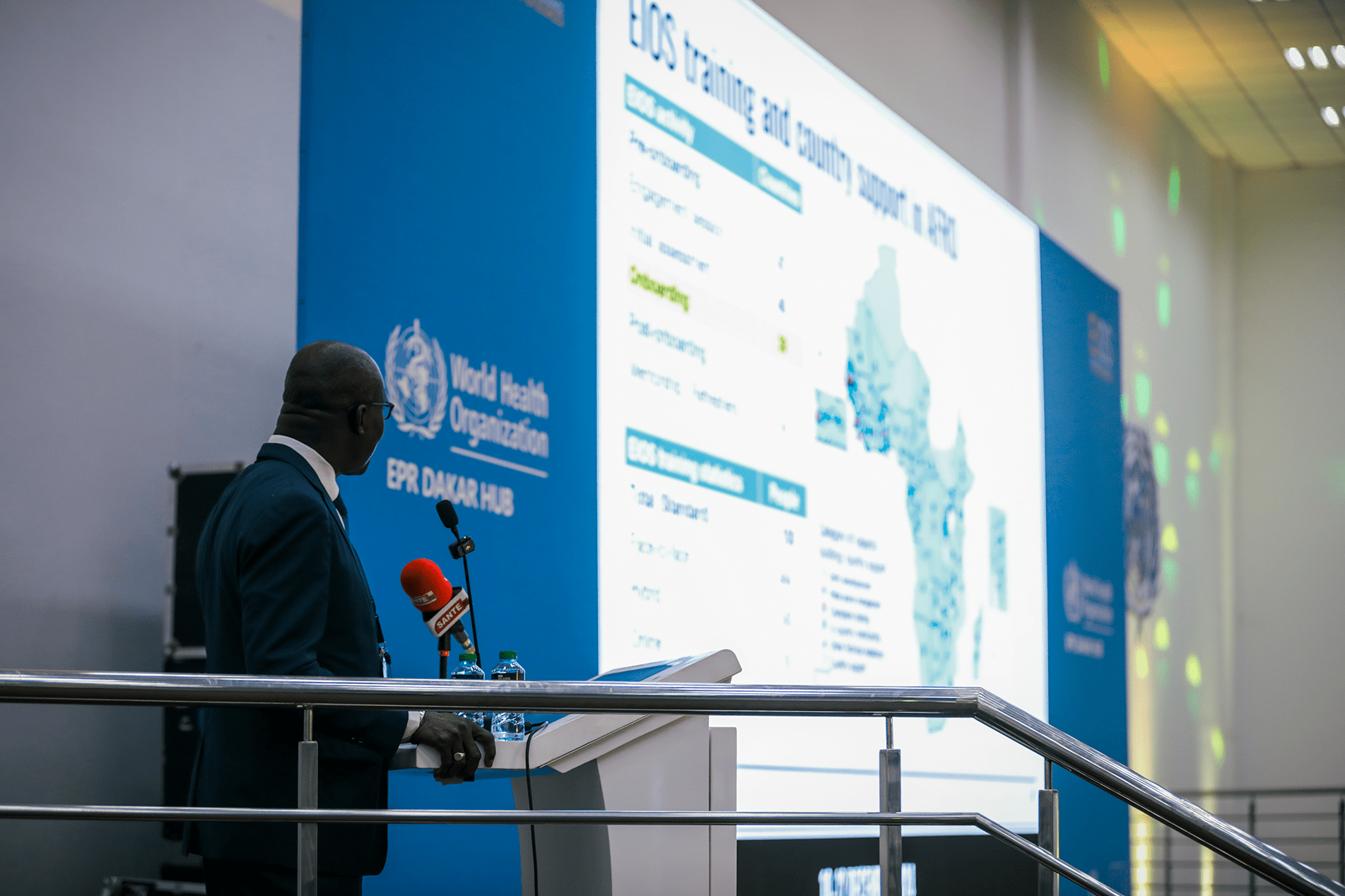
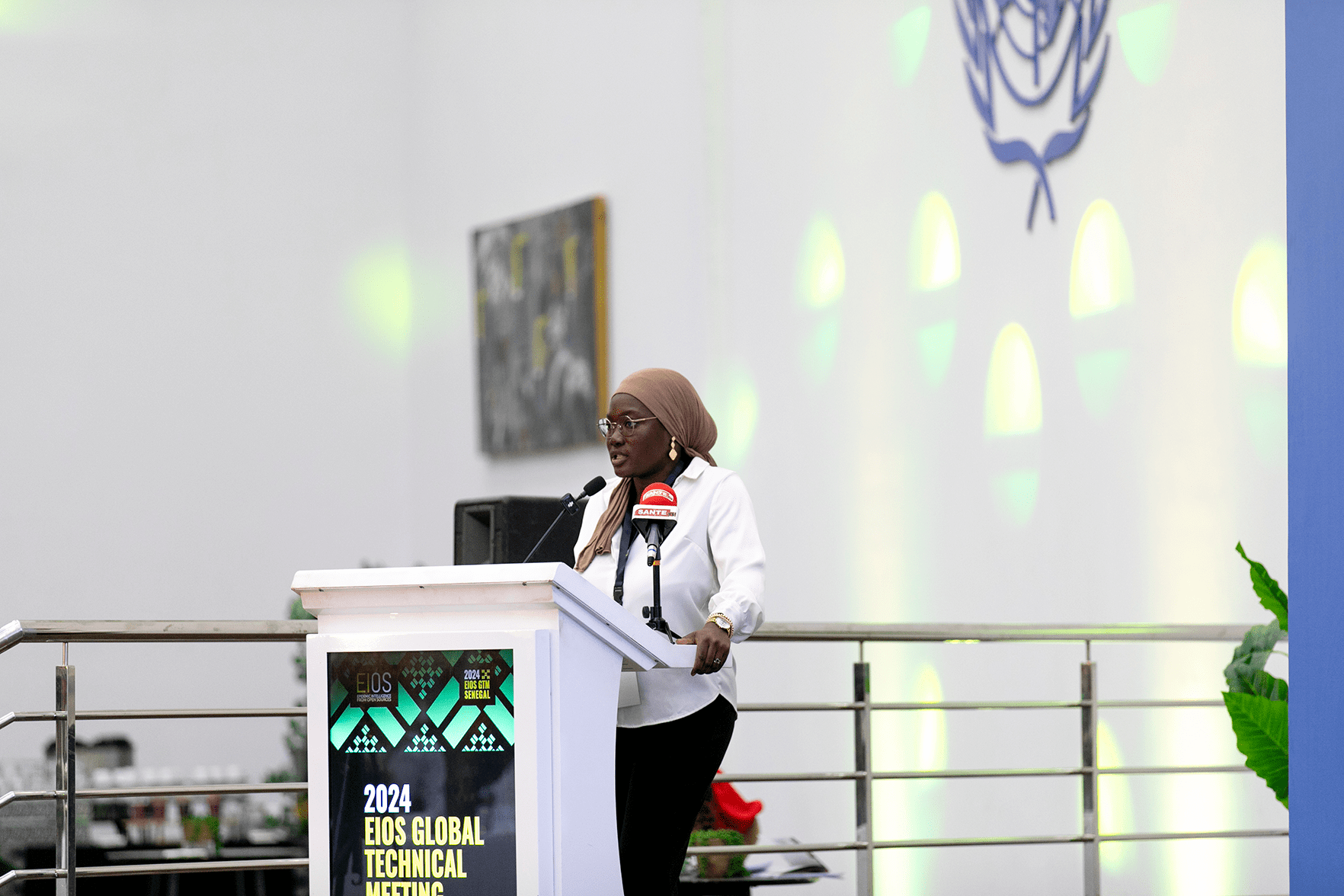
WHO Regional Emergency Hub Dakar: Mitigating the Impact of Public Health Threats in the African Region
Presenter: Thierno BaldeHead and Coordinator
WHO Regional Emergency Hub Dakar
WHO Regional Office for Africa (AFRO)
WHO Strengthening Public Health Intelligence: The EIOS Initiative in the African Region
Presenter: Etien KouaProgramme Area Manager
Health Emergency Information and Risk Assessment (HIM)
WHO Regional Office for Africa (AFRO)
Official Launch of Epiverse in Africa
Presenter: Maguette Ndong
Technical Project Manager, data.org
Session: Intelligence in Action: National Perspectives in PHI
This session will set the stage by examining the essential role of public health intelligence (PHI) in national and regional preparedness and response, focusing on the importance of strengthening PHI functions wherever they are situated and how EIOS connects and integrates with other critical systems. Representatives from national public health agencies (NPHAs) and Ministries of Health (MoHs) will share their experiences and perspectives on connecting PHI and surveillance functions with EIOS within their organizations. As dozens of Member States build their own PHI and surveillance capabilities, panelists will explore what is needed to achieve cohesive, coordinated intelligence generation that can effectively detect and mitigate public health threats. This discussion will highlight how different setups and coordination approaches impact speed, responsiveness, and global preparedness for future pandemics.
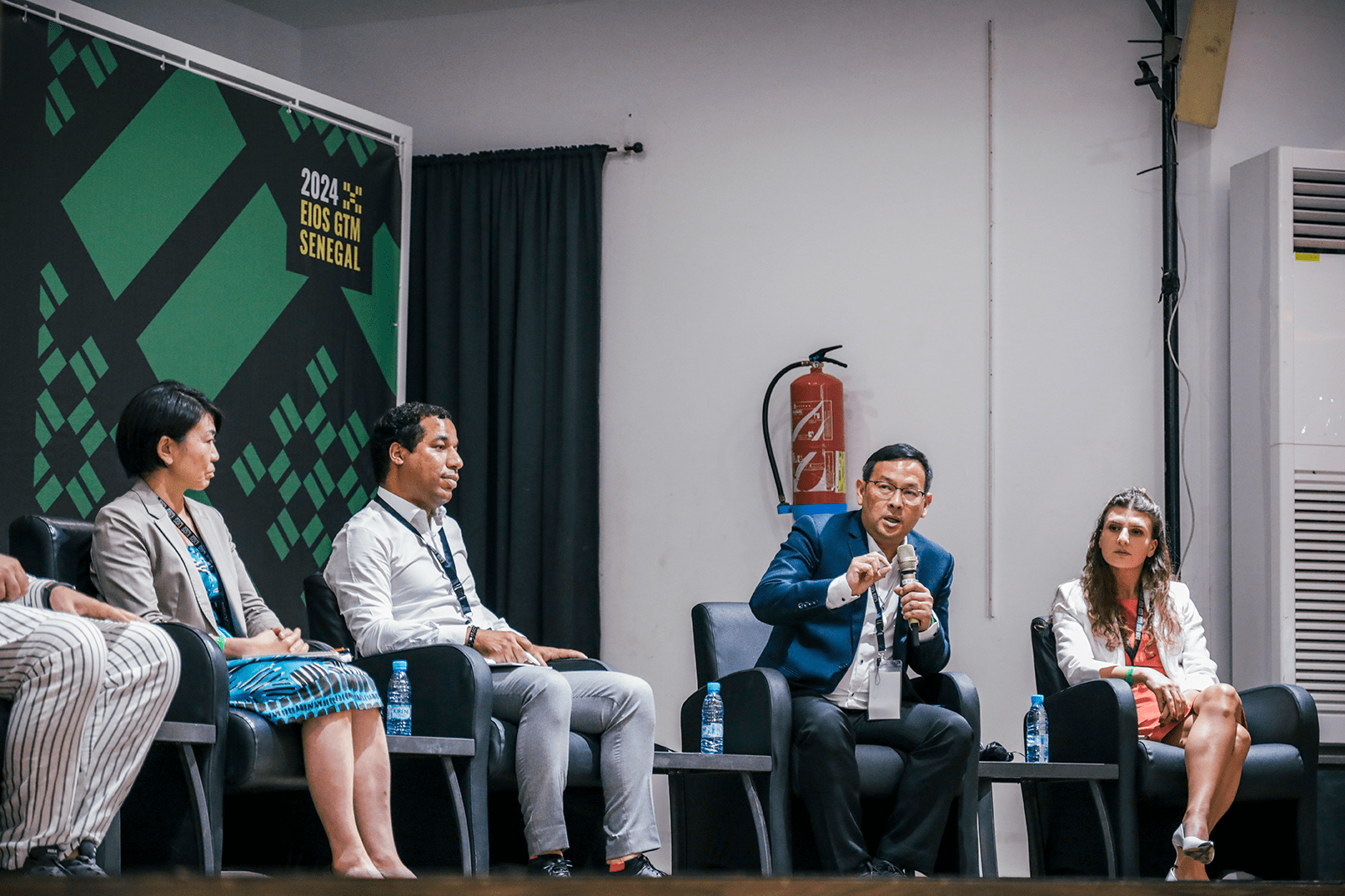
Georgia
Head
Public Health Emergency Preparedness and Response Division
National Center for Disease Control and Public Health, Georgia
Thailand
Director
Division of Disease Control in Emergencies
Ministry of Public Health, Thailand
Morocco
Epidemiologist
Public Health Emergency Operations Center (PHEOC)
Ministry of Health & Social Protection, Morocco
Japan
Chief
Division for Epidemic Intelligence Training and Practice
National Institute of Infectious Diseases, Japan
Dominican Republic
Epidemiology Analyst
Ministry of Public Health,
Dominican Republic
Togo
Epidemiologist
Integrated Health Emergencies
Surveillance Division
Ministry of Health, Togo
Session: PHI Operational Framework #1: Setting the Stage
As NPHAs continue to expand and strengthen their intelligence capabilities in alignment with IHR recommendations, it becomes more crucial to harmonise our PHI thinking while ensuring its contextual relevance. This first session of a three-day workshop running throughout this year’s GTM will contribute to the development of a WHO-led framework to create a common language and understanding. This framework will build on an array of guidance documents that exist to support global and national public health intelligence operations.
In this first session, members of WHO’s Public Health Intelligence unit will provide the broader context within the Collaborative Surveillance landscape and familiarize participants with the scope of work planned. Participants will identify opportunities and challenges for the operationalization of public health intelligence to inform the discussion on day 2.
Presenter:
Esther Hamblion, Unit Head, Public Health Intelligence Unit, WHO Health Emergencies Programme
Lindsay Whitmore, Head, Coordinated Threat Assessment Division, Public Health Agency Canada (PHAC)
Bruno Rochia, Epidemiologist, Public Health Intelligence Unit, WHO Health Emergencies Programme
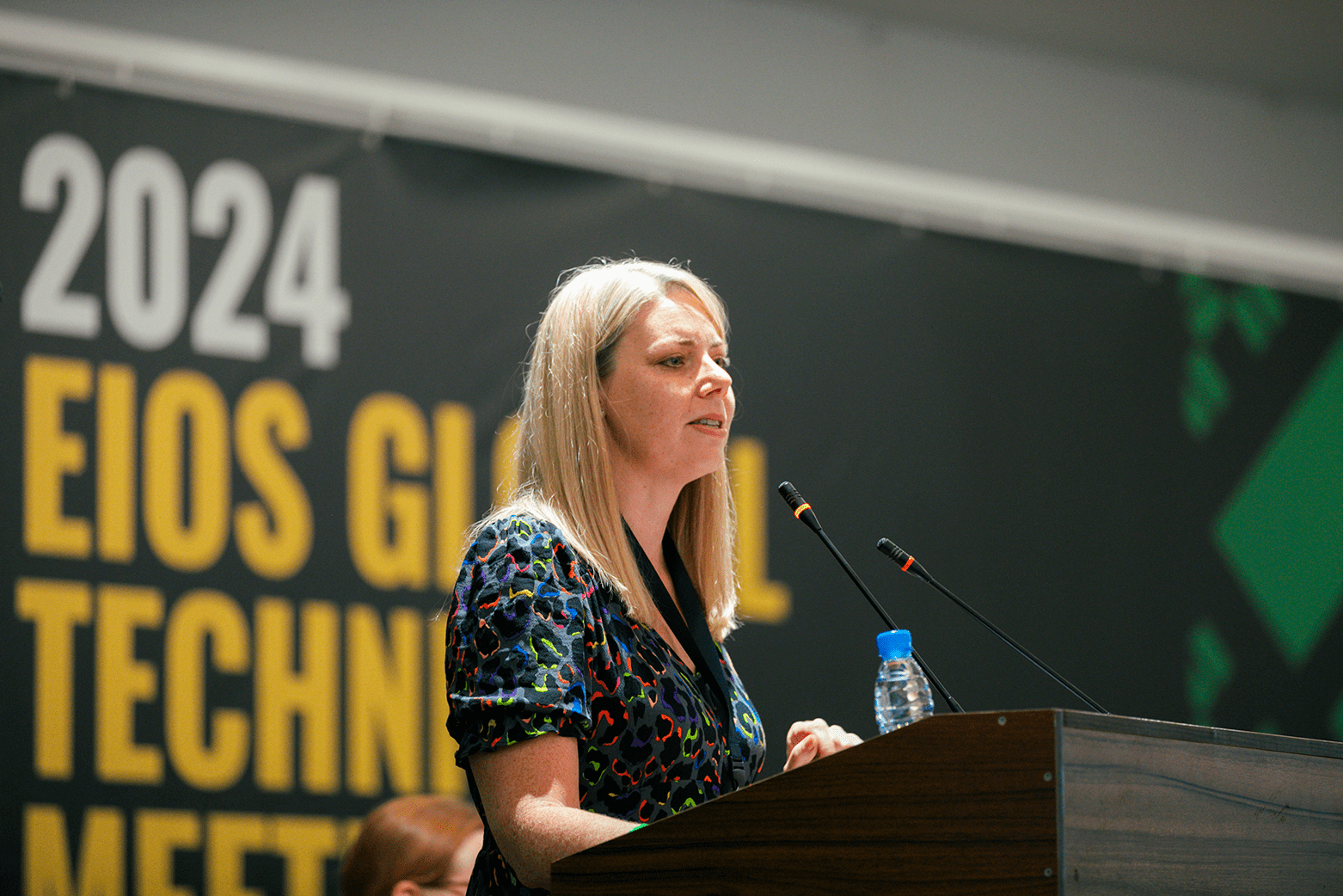
Day 2
Session: Beyond the Horizon: Unleashing AI’s Potential for Public Health
This keynote will inspire you to think beyond the conventional and imagine groundbreaking AI applications in public health. Discover how AI can enhance disease prediction, support real-time monitoring, and transform health data into actionable insights. Be prepared to explore innovative solutions that could redefine public health intelligence and consider strategies for making the most of this new technology. Join us to envision a healthier world powered by AI!
Presenter: Katherine Hoffmann Pham, AI Advisor, Office of Innovation, United Nations Children’s Fund (UNICEF)

Session: Collaboration for Good: Connecting Minds, Saving Lives
In this session, we explore how AI and technology solutions, fueled by collaboration, can and are transforming public health intelligence at community, regional, and global levels. Speakers will share insights on the role of data science in driving social impact, the power of collaborative platforms for exchanging models and knowledge, and how innovation through collaboration has been addressing various public health challenges.
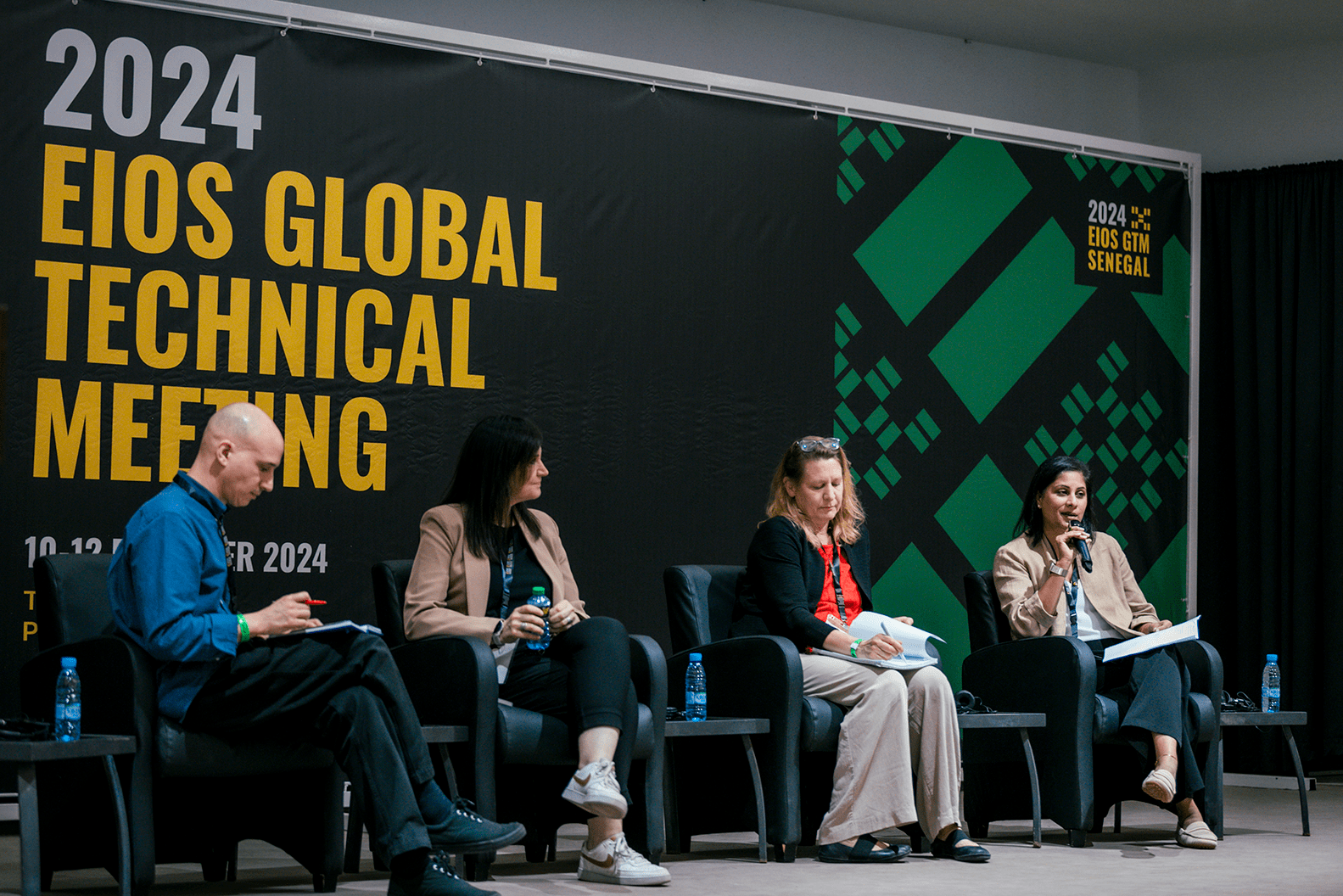

Ending Pandemics in our Lifetime Initiative
Presenter: Nomita DiviExecutive Director
Ending Pandemics
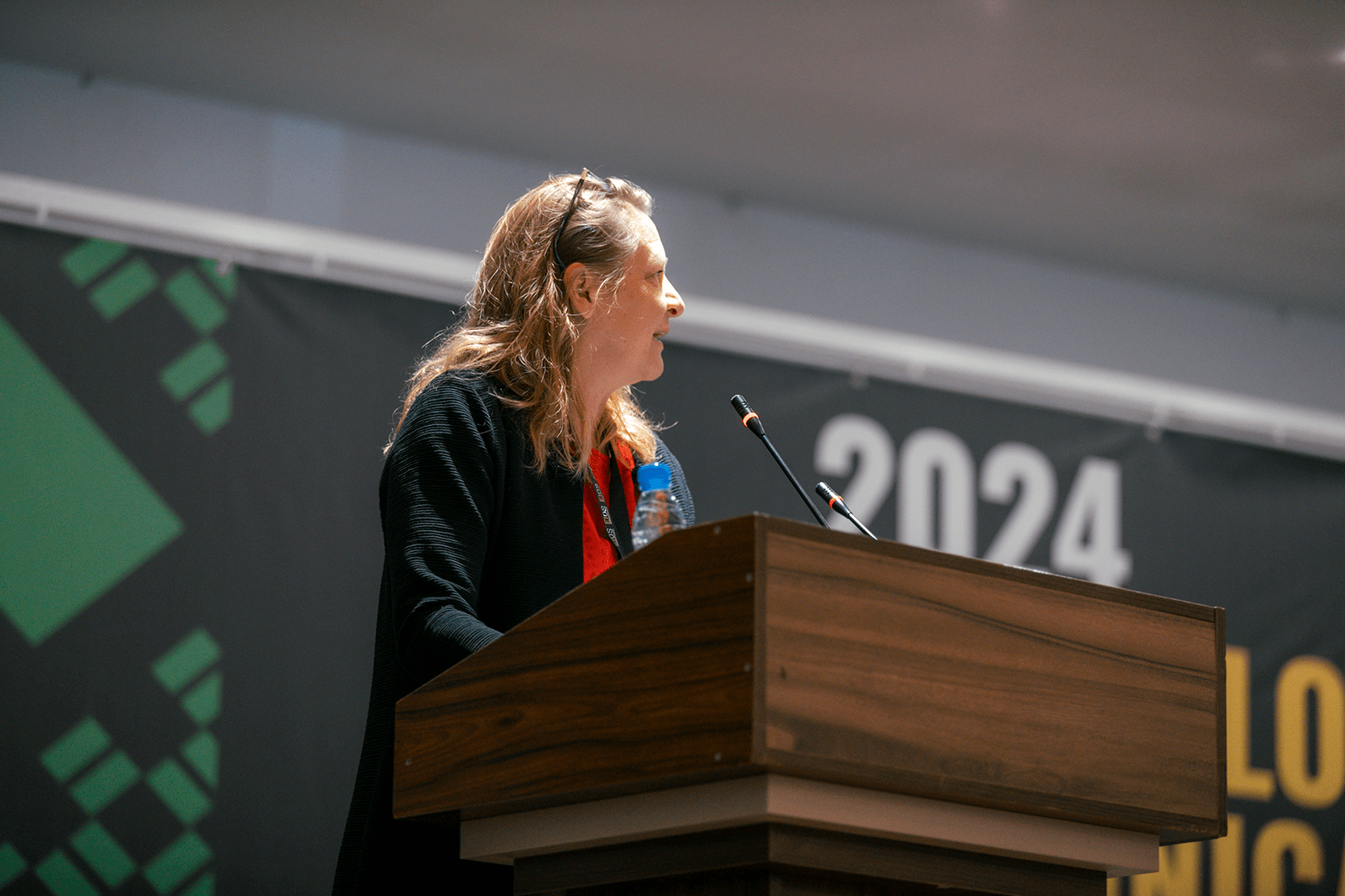
Collaboratory: A laboratory for pandemic and epidemic intelligence
Presenter: Julia FitznerUnit Head
Insights and Analytics
WHO Health Emergencies Programme

Community Engagement for Public Health Intelligence
Presenter: Daniela PaolottiSenior Research Scientist
Digital Epidemiology Laboratory and Data Science for Social Impact
Institute for Scientific Interchange Foundation (ISI)
Session: Getting Smarter: Tech Innovations for EIOS
This session will highlight the latest work and technological innovations for the EIOS system, focusing on the upcoming release of EIOS system v2.0. Speakers will provide a preview of the main features included in v2.0's release while offering an overview of advanced analytical capabilities currently under development, to be introduced in future iterations. These upcoming enhancements include noise reduction, speech-to-text integration, effective multilingual semantic search across large datasets, and AI tools for discovering new content and extracting numerical data from published documents and websites. While EIOS system v2.0 lays the foundation, this session will offer a glimpse into the system’s future capabilities and ongoing advancements.
.tmb-1920v.png?sfvrsn=388a9015_1)

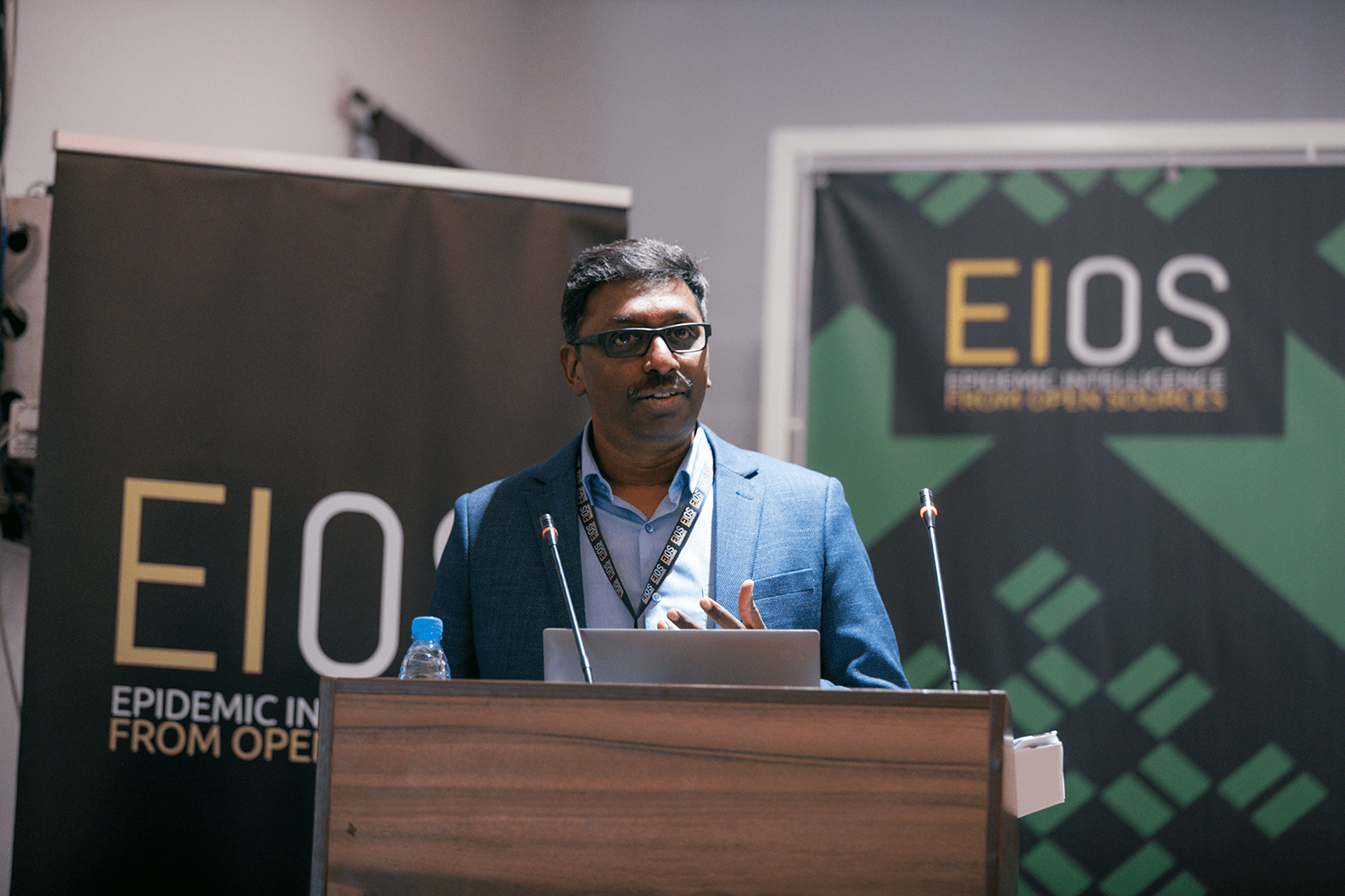
EIOS v2.0
Presenter: Luigi SpagnoloIT Project Assistant
Joint Research Centre of the
European Commission (JRC)
EIOS Noise Reduction
Presenter: Justice AgbaduData Scientist
Robert Koch Institute (RKI)
Unite Wave: Big Data Radio Mining Project
Presenter: Jaikumar SabanayagamInformation System Officer
UN Office of Information and Communications Technology (OICT)

Radio Mining for PHI in the African Region
Presenter: Godwin Ubong AkpanRegional Lead
Information Systems and Data Analytics
WHO Regional Office for Africa (AFRO)

EIOS: Latest and Coming Features
Presenter: Jon AnthonyFounder
Adappt
Session: Inclusive Intelligence: Equitable AI for Public Health
As we look to the future of public health intelligence, it’s time to explore the latest innovations that can extend our reach beyond the EIOS system. This session will highlight AI-driven solutions designed to enhance support for low-resource languages, rank and forecast critical biothreats, and shape governance and policy frameworks for responsible AI use. These advancements and critical discussions are not only about complementing and expanding the EIOS system but also about fostering inclusive and equitable health outcomes on a global scale.

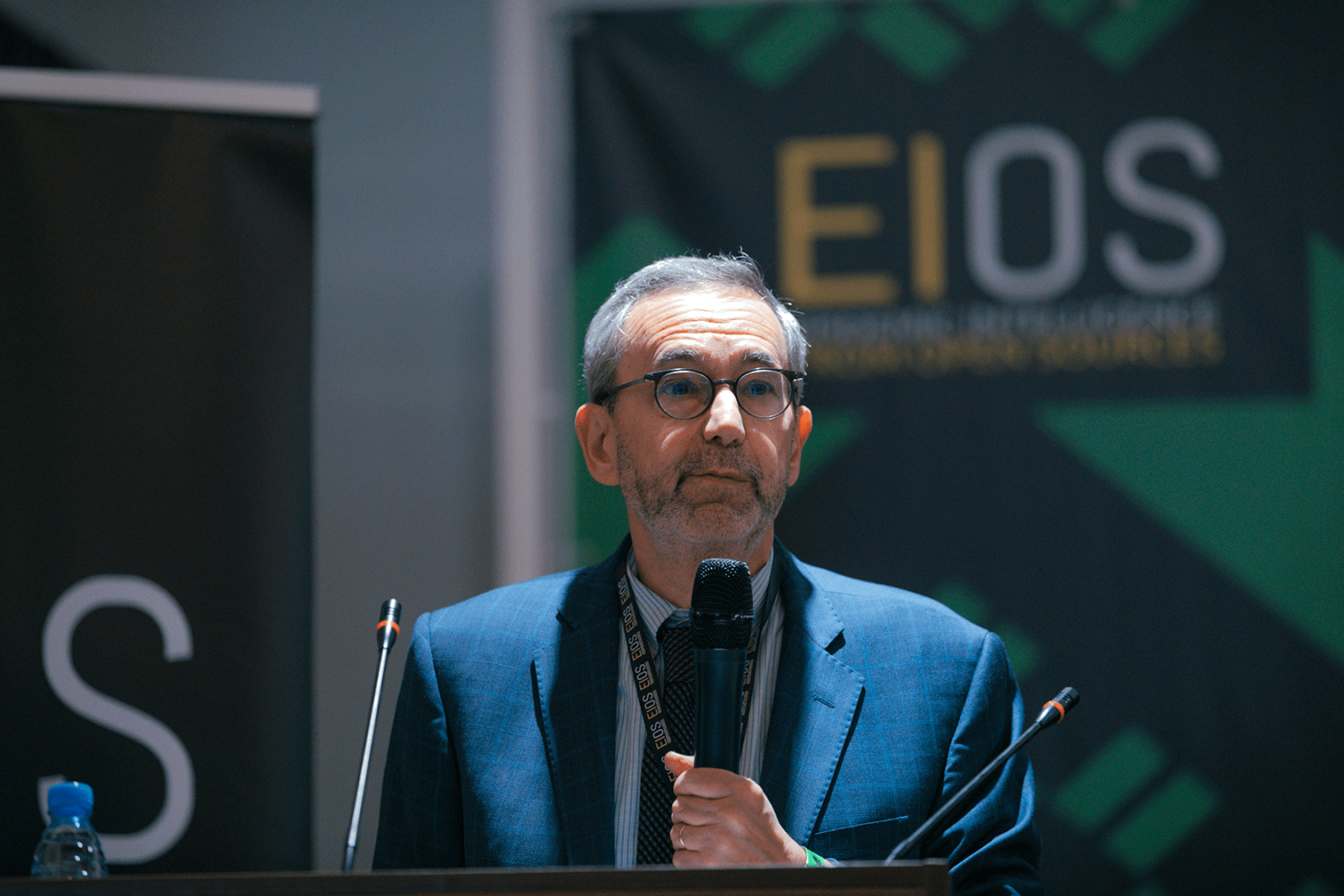
The challenges of African language processing in healthcare use cases
Presenter: Derguene MbayeGeneral Manager, AI & NLP Research
Galsen AI
BEACON: Biothreats Emergence, Analysis, and Communications Network
Presenter: Larry MadoffSenior Advisor
Biothreats Emergence, Analysis and
Communications Network (BEACON)
Session: PHI Operational Framework #2: Opportunities and Challenges – Workshop
Building on the previous day’s work, this second session in this series is a workshop, aimed at gathering your perspectives on the elements that are needed to shape the future of public health intelligence. Participants will work in small groups to discuss a particular challenge or opportunity which needs to be considered for public health intelligence of the future. Your insights will help answer the question – what needs to be included in the PHI Operational Framework to support countries to better understand, adapt, and improve their own public health intelligence operations?
Presenter:
Esther Hamblion, Unit Head, Public Health Intelligence Unit, WHO Health Emergencies Programme
Lindsay Whitmore, Head, Coordinated Threat Assessment Division, Public Health Agency Canada (PHAC)
Bruno Rochia, Epidemiologist, Public Health Intelligence Unit, WHO Health Emergencies Programme
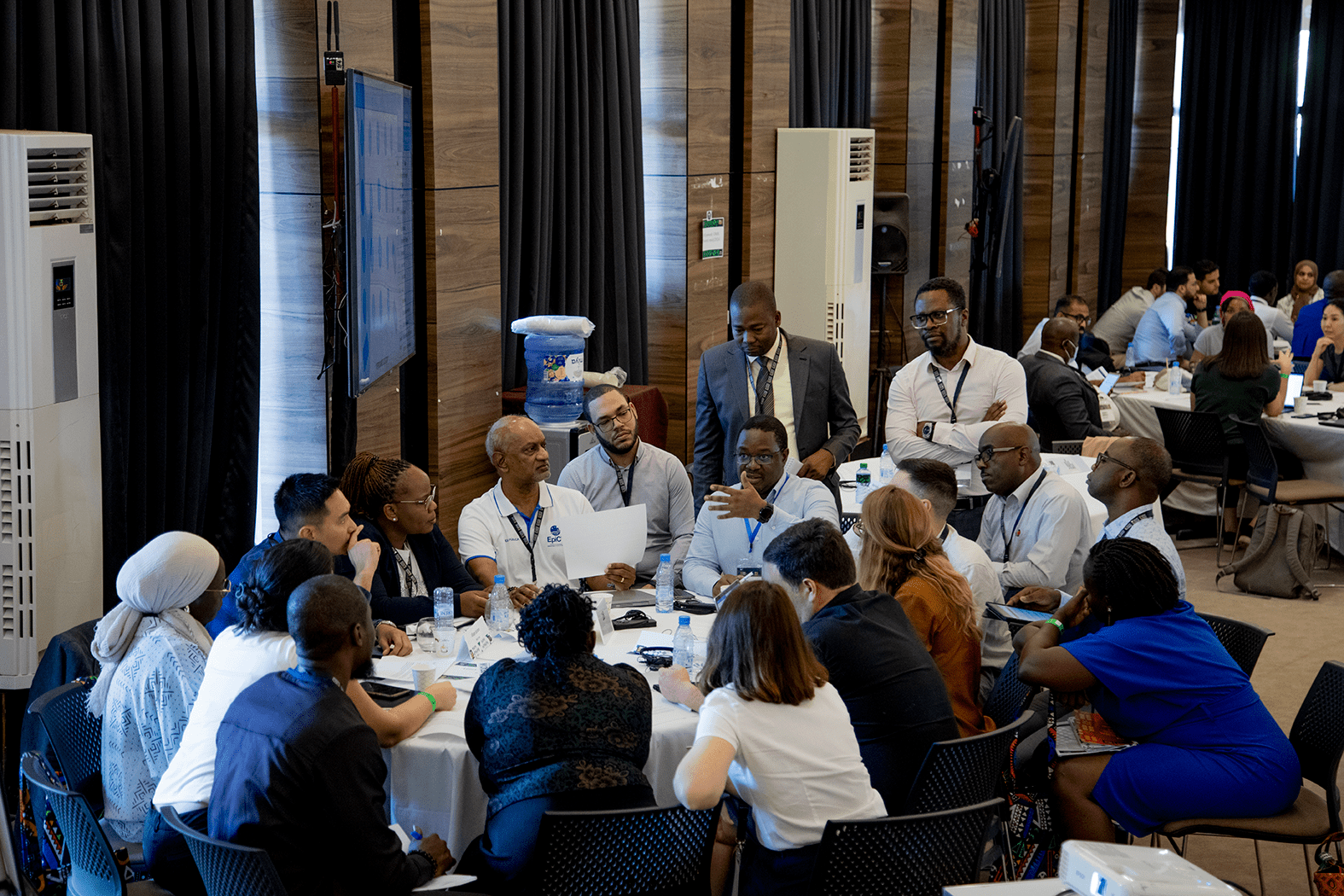
Day 3
Session: The Future isn’t What it Used to Be: Shaping the Next Generation of the PHI Workforce
This session will emphasize the critical role of workforce development in Public Health Intelligence (PHI) and explore innovative approaches to preparing the next generation of professionals. We will discuss the challenges and opportunities in PHI, envision the future, and highlight the importance of training professionals at regional, national, and global levels.
Presenter: Melinda Frost, Unit Head, Learning Design and Production, WHO Academy
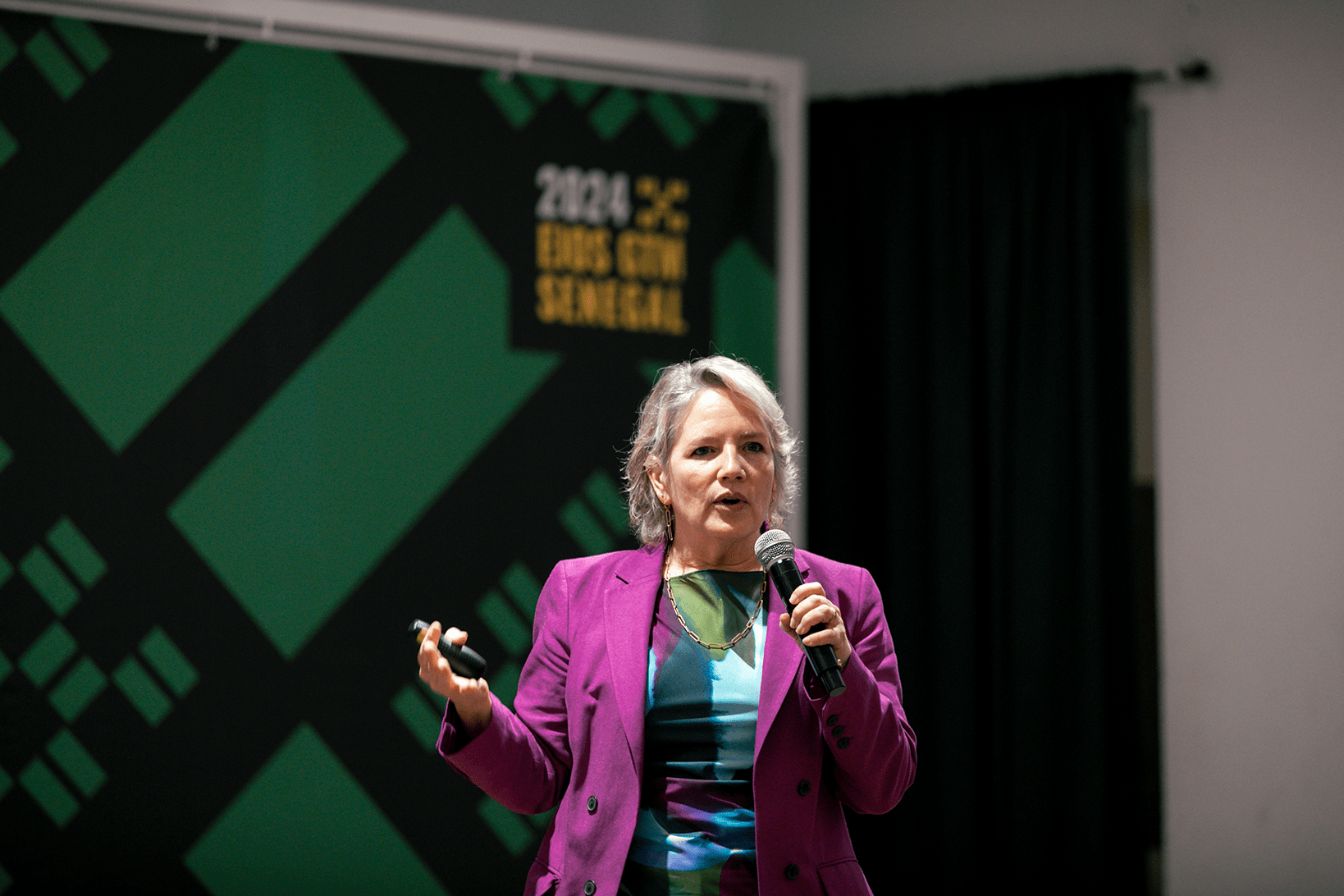
Session: (En)Lightning Session: New Approaches to PHI Training
Get ready for fresh perspectives in PHI training and workforce development! This session will showcase new methods, tools, and innovative strategies designed to build capacity for tackling global health challenges through real-world examples. As PHI rapidly evolves due to emerging threats and technological advancements, developing a well-trained and adaptable workforce is more crucial than ever. Whether you're a seasoned professional or new to the field, this dynamic session promises to inspire and energize you with cutting-edge strategies and creative solutions.



The Brazilian EIOS experience: an innovative training approach
Presenter: Álvaro Ítalo de Sousa DiasTechnical Consultant
National Network of Strategic Information Centers in Health Surveillance
Ministry of Health, Brazil
Uganda: PHI and EIOS Capacity Building Program
Presenter: Freda AcengSenior Epidemiologist
Department of Integrated Epidemiology, Surveillance and Public Health Emergencies
Ministry of Health, Uganda
Strengthening PHI Competencies
Presenter: Raquel MedialdeaCarrera
Training Officer
Intelligence Innovation and Integration (III)
WHO Health Emergencies Programme

PHI Capacity Building in EMRO
Presenter: Muzghan Habibi
Technical Officer, EIOS Focal Point
Health Emergency Information and Risk Assessment (HIM)
WHO Regional Office for the Eastern Mediterranean (EMRO)
Presenter: Madison Harman
Technical Officer
Public Health Intelligence and Training
Robert Koch Institute (RKI)

Capacity Accelerator Network: Developing a Future-Ready PHI Workforce
Presenter: Priyank HiraniDirector of Capacity Building
data.org
Session: Building the Future of PHI: Training, Evaluation and Workforce Development – Workshop
Join the Public Health Intelligence (PHI) Training Working Group for an interactive workshop focused on advancing PHI training and competencies. This session invites participants to collaboratively explore current needs, including evaluations of training programs, monitoring and evaluation (M&E) frameworks, training sustainability, and the establishment of PHI training standards. Through guided discussions and brainstorming, attendees will identify core areas critical to PHI skill-building and long-term workforce development. This workshop offers a unique opportunity to shape the future of PHI training and support a sustainable, standards-driven approach.
Presenter: Facilitated by Members of the Public Health Intelligence Training Working Group
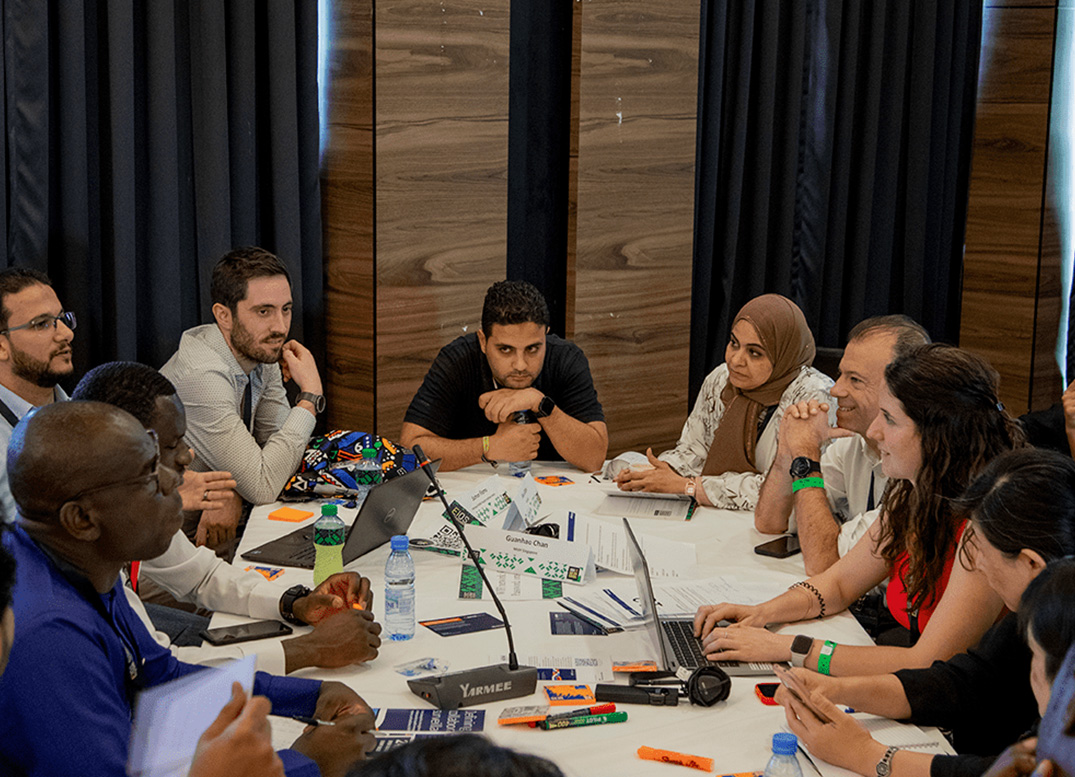
Session: Collaborative Surveillance: Country, Regional and Global Action
This session will showcase examples from Member States and partners on how they are advancing the implementation of collaborative surveillance by strengthening coordination and application of multiple systems and data sources. It will highlight current country-level approaches and regional strategies, demonstrating the use of the EIOS system and other tools as part of the broader surveillance ecosystem, as well as applications in One Health and conflict contexts. The session will also touch on global initiatives supporting the strengthening of the broader enabling environment (systems, governance, and financing) for collaborative surveillance as a core component of strengthening health emergencies prevention, preparedness, response, and resilience (HEPR).



Collaborative Surveillance in Zambia
Presenter: Davie SimwabaMedical Public Health Specialist
Integrated Disease Surveillance and Response
Zambia National Public Health Institute
Collaborative Surveillance: The Singapore Experience
Presenter: Guanhao ChanAssistant Director
Public Health Intelligence
Ministry of Health, Singapore
Advancing Multi-sectoral Collaborative Surveillance in WHO South-East Asia Region: Indonesia Dengue Case Study
Presenter: Masaya KatoProgramme Area Manager
Health Emergency Information and Risk Assessment (HIM)
WHO Regional Office for South-East Asia (SEARO)



Advancing Multi-sectoral Collaborative Surveillance in WHO South-East Asia Region: Indonesia Dengue Case Study
EIOS Utilization in Conflict and Displacement Context in the Eastern Mediterrenean Region
Strategy on Epidemic Intelligence for Strengthening Early Warning of Health Emergencies in the Americas
Epidemiologist
Directorate of Health Surveillance and Quarantine
Ministry of Health, Indonesia
Surveillance Officer, EIOS Focal Point
Health Emergency Information and Risk Assessment (HIM)
WHO Regional Office for the Eastern Mediterranean (EMRO)
Technical Officer
Epidemic Alert and Response
Pan American Health Organization (PAHO/WHO)

Collaborative Surveillance: The Global Perspective
Presenter: Brett ArcherEpidemiologist
Surveillance Systems Department
WHO Health Emergencies Programme
PHI Operational Framework: Wrap-up and Next Steps
In the final session on the PHI Operational Framework, we will summarize the small group workshop from the previous day and highlight identified priority areas. With a view to the future, we will also present the terms of reference for an upcoming technical working group to be consulted as the framework is being developed and will seek participants for this group.
Presenter:
Esther Hamblion, Unit Head, Public Health Intelligence Unit, WHO Health Emergencies Programme
Lindsay Whitmore, Head, Coordinated Threat Assessment Division, Public Health Agency Canada (PHAC)
Bruno Rochia, Epidemiologist, Public Health Intelligence Unit, WHO Health Emergencies Programme
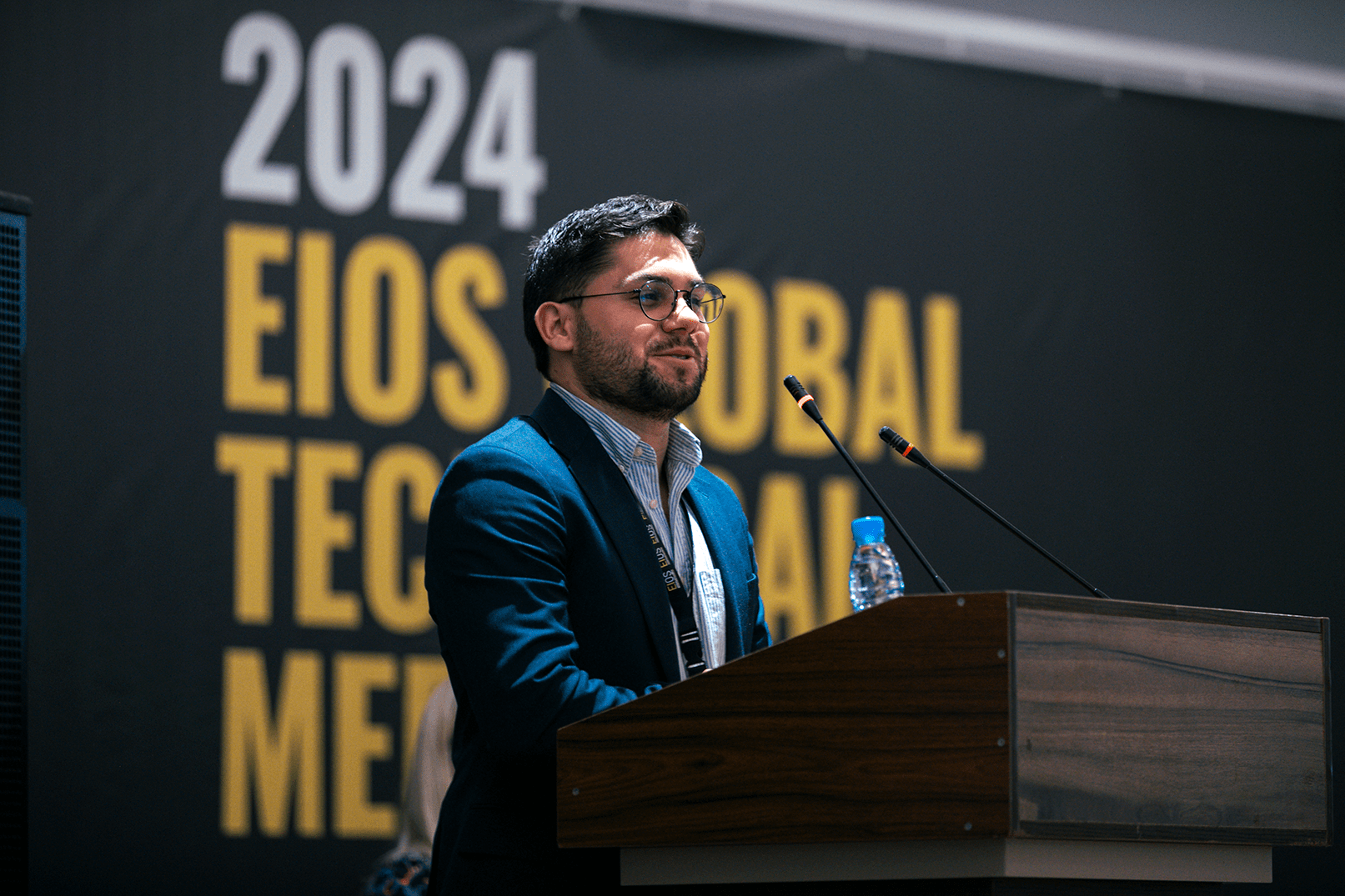
Closing Ceremony
As we close the 2024 EIOS Global Technical Meeting, we extend our heartfelt gratitude to the outgoing EIOS Coordination Group 2023-24 for their tireless efforts and remarkable contributions to advancing public health intelligence. Their leadership has been instrumental in driving the EIOS initiative forward over the past two years. In these final moments of the 2024 EIOS GTM, we have the pleasure to announce the new EIOS Coordination Group, who will build on this foundation and lead us into an exciting new phase of collaboration and innovation in the next two years to come. We will close with some reflections on the 2024 EIOS GTM and the future of public health intelligence that lies ahead of us.
Presenter: Oliver Morgan, Director, Pandemic and Epidemic Intelligence Systems, WHO Health Emergencies Programme

